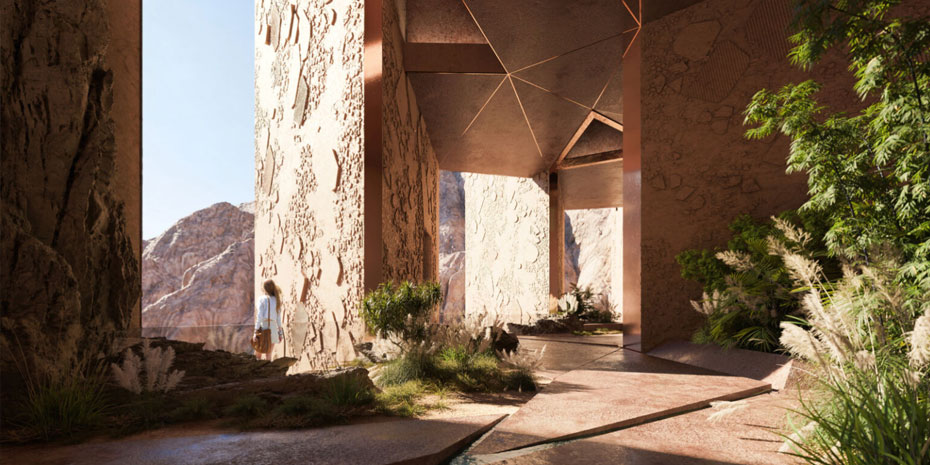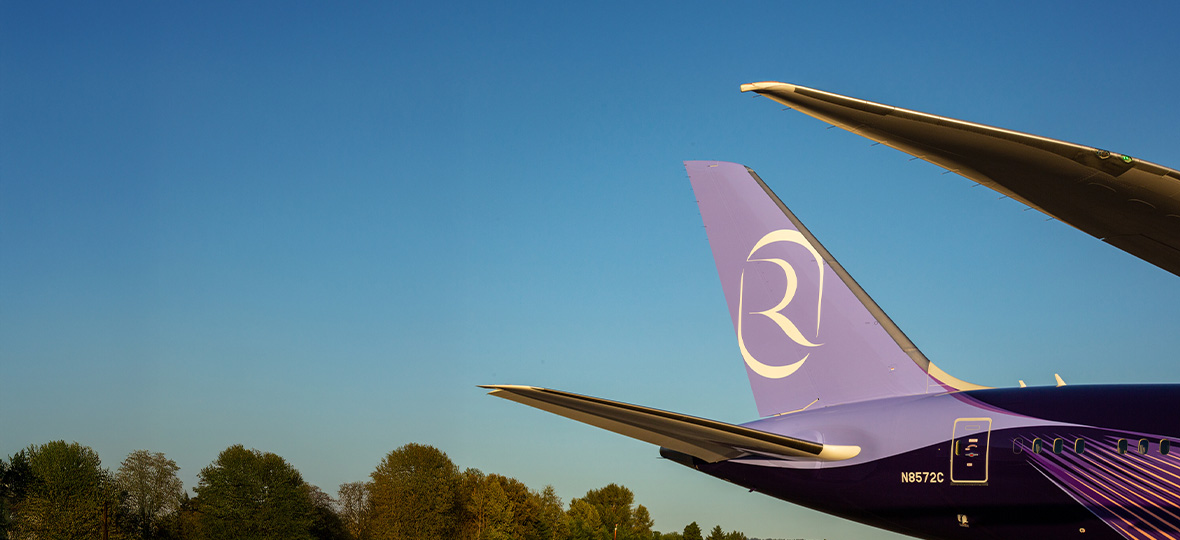How PIF is pioneering new solutions for sustainable agriculture
.jpg)
As world population heads towards 10bn by 2050, global food demand is projected to rise by more than 50%. Regions with arid climates, such as the Middle East, face particular challenges as they work to secure their food supply in ways that are sustainable and adaptable. Saudi Arabia, where arable land is scarce and water resources are limited, demonstrates the complexities of this endeavor. Food security has become not only an economic goal, but a fundamental part of national resilience – a cornerstone of its Vision 2030 initiative.
Historically, other nations have pioneered solutions for agriculture in challenging environments. The Netherlands’ ongoing land reclamation has resulted in a nation now second only to the U.S. in terms of farmed good exportation. A new path is now being charted in Saudi Arabia, with PIF, one of the world’s leading sovereign wealth funds, harnessing agritech to create a future-proof food production landscape, and offering a model that other water-scarce regions could learn from.
As Majed Alassaf, Head of Consumer Goods and Retail Sector in MENA Investments at PIF, explains, “We look at food security from two perspectives: securing strategic food commodities from external sources and achieving sustainability and self-sufficiency domestically.”
Strategic role in agricultural innovation
Saudi Arabia’s agricultural transformation has been accelerated through PIF initiatives that increase both self-sufficiency and resilience. With investments in key commodity markets such as Brazil and India, PIF focuses on strategic assets that give it control over critical resources. This approach was notably refined following Covid-19’s supply chain disruptions, which led to a recalibration of Saudi Arabia’s food security goals. “What Covid showed us,” Alassaf says, “is that we need to secure our resources to ensure that the consumer in Saudi Arabia will always have access to essentials without interruption.” This approach now combines proactive international partnerships with advanced agritech deployments domestically.
The Saudi Agricultural and Livestock Investment Company (SALIC), a PIF subsidiary, embodies this approach, investing in global agribusiness companies with technical, geographical and environmental comparative advantages, as well as investing in and enabling local companies to support a sustainable food supply system and position SALIC as a global agri-food champion and food security leader. By acquiring substantial assets in commodity-rich regions such as South America and Australia, SALIC ensures Saudi Arabia has access to essential imports such as livestock. These acquisitions are intended not just to meet today’s needs but also to provide a safety net for times of crisis. “Our strategy is to support securing the entire value chain, allowing us to respond swiftly and prioritize Saudi needs when disruptions arise,” says Alassaf.
In addition to its international investments, PIF is advancing domestic agricultural innovation to bolster Saudi Arabia's food security and economic diversification. An example is NEOM’s food company, Topian, which is pioneering sustainable food production methods, including climate-resilient agriculture and regenerative aquaculture, to future-proof the nation's food systems.

Similarly, the Saudi Coffee Company is revitalizing the local coffee industry by aiming to increase production and position Saudi Arabia as a global player in the sector.
Meanwhile, the Al Madinah Heritage Company is dedicated to elevating the production, processing and global appreciation of the diverse varieties of Saudi dates. By focusing on innovation and sustainability, the company is transforming dates into high-value products that not only preserve the nation’s rich food heritage but also position Saudi Arabia as a leader in the global date industry. The launch of Milaf Cola, in November 2024, created significant buzz on social media, capturing public attention and showcasing the innovative potential of dates. “Milaf Cola is just one example of how we aim to unlock new potential in date-based products,” says Bander AlQahtani, CEO at Al Madinah Heritage Company, highlighting the company’s commitment to enhancing the economic and cultural value of dates through strategic innovation.
The company is already seeing its brands reach new markets, with the recent announcement of a strategic distribution agreement with LuLu Group International that will see an expansion in the Gulf and East Asia. Milaf is also launching its products in the Hashemite Kingdom of Jordan in cooperation with Qutoof Dania, and a Nua luxury dates kiosk has opened at Singapore Changi Airport.
The production of camel milk, too – as a sustainable alternative to dairy – is on the rise, produced by the Sawani company. The company is rejuvenating a regional industry and heritage in an innovative way for modern consumers. This growing market is predicted to be worth more than $13bn by the end of the decade.
Meanwhile, PIF-owned Halal Products Development Company (HPDC) is focused on localizing the Halal manufacturing industry and developing the Halal ecosystem globally.
Collectively, these initiatives reflect PIF's comprehensive strategy to strengthen food security through both global partnerships and domestic advancements, ensuring a resilient and diversified food supply for Saudi Arabia.
Tech solutions driving sustainable agriculture
To maximize limited resources, agritech solutions are being adopted to significantly reduce resource consumption. Green Dunes, a vertical farming venture supported by the food retailer Tamimi Markets, in which PIF has a stake, uses 95% less water than traditional agriculture, enabling the growing of crops in conditions that would otherwise be prohibitive. These advancements are also seen in Pure Harvest, backed by the National Agricultural Development Company (NADEC) in Saudi Arabia, in which SALIC has a stake, which deploys high-tech hydroponic systems requiring only a fraction of the water used in conventional farming.
As Randy Jagt, Deloitte’s Future of Food Lead, explains, “The food system can no longer expand traditionally; we need transformation driven by innovation.” Jagt points to the role of AI and data in precision agriculture as crucial to overcoming natural limitations, adding that agriculture’s digital transformation has finally caught up with the needs of a rapidly growing global population. Technologies such as blockchain are also helping Saudi Arabia track and secure food supplies with unprecedented transparency, ensuring the efficiency and reliability of food production across the value chain and increasing consumer trust.
The adoption of closed-environment and water-efficient systems reflects a shift toward regenerative agriculture, a trend critical for regions facing climate constraints. “We are technology-agnostic,” says Alassaf. “With a focus on results, we leverage natural advantages where we can.” This includes selecting international partners who bring advanced technology and specific climatic benefits.
Global impact and lessons for the future
The focus is on agricultural innovations that provide new frameworks for other regions facing similar environmental limitations. Investments such as SALIC’s partnerships in Brazil show how strategic global alliances can enhance local resilience and stability. These partnerships also create positive ripple effects, contributing to job creation and infrastructure in the regions involved. Alassaf emphasizes that the country’s integration of global assets is about building an interconnected food security system: “By linking international companies into one value chain, we’re creating a multiplier effect that benefits Saudi Arabia and our partners.”
Randy Jagt also emphasizes the need for value chain collaboration to achieve scalable, sustainable agriculture solutions. “Data and transparency are essential for optimizing production and ensuring impact,” he says, adding that partnerships across sectors enable the successful integration of new technologies into broader markets.
Vision 2030 and beyond
Looking ahead, Saudi Arabia’s agricultural transformation is positioned to align with global sustainability goals, while PIF’s commitment to technological advancements and ecosystem partnerships serves as a blueprint for resilient food systems in arid regions. As the world’s food demands increase amid environmental pressures, these advancements in water-efficient farming and climate-adaptive partnerships show what’s possible when economic resilience meets environmental stewardship.
“PIF is not just securing food for today,” says Alassaf. “We are also building an ecosystem for generations to come.” This alignment with Vision 2030 reflects the broader goals associated with becoming a diversified, sustainable economy. As other regions face similar pressures, this model – with its blend of innovation, resource efficiency and strategic partnerships – offers valuable lessons for a future in which agriculture is as secure as it is sustainable.
Produced by the Financial Times
-
PIF News Network
06 October 2025 The PIF Effect: Setting blueprints for growth in Saudi Arabia and the world
-
-
PIF News Network
12 May 2025 Luxury meets sustainability in Saudi Arabia’s landmark wellness escapes -
-
PIF News Network
29 April 2025 Fast-tracking Saudi Arabia’s economic diversification, from aviation to logistics



.jpg?h=465&iar=0&w=930)


